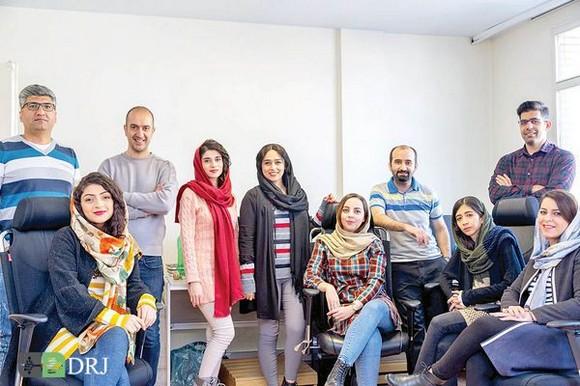
The tech behemoths’ role in nation-states is evolving
The biggest US tech companies now have powers which challenge the primacy of governments in many domains. In many cases they also have capabilities not available to nation states. We touched on these issues, and the notion of “corporate foreign policy” in one of the previous issues of my weekly newsletter Exponential View.
Last year, Microsoft’s Brad Smith argued that — at least in the realm of cybersecurity — “the global tech sector needs to operate as a neutral Digital Switzerland. We will assist and protect customers everywhere.”
Now in the Pennsylvania Law Review, Kristen Eichensehr looks at the issue of Digital Switzerlands in greater depth, 66 pages of it to be precise. We’ve summarized parts of it here. One key distinction between large corporations and nation states is that they lack territory, control of state-violence, and have very different governance mechanisms to nation-states. But that is as true for many supranational bodies as well.
There are similarities between these large platforms and nation-states: in the size of their user bases, which rivals nation-states; their ability to access and influence those user bases; their financial capacity; and their ability to actually impact citizens at scale.
Eichensehr sounds a note of optimism:
The aspirational quasi-sovereign status of the U.S. technology companies [created] two powerful regulators, rather than only one [the nation state], [and] can benefit individuals’ freedom, liberty, and security because sometimes it takes a powerful regulator to challenge and check another powerful regulator.
We’ve already seen a certain amount of this. Technology firms have been helpful in their approach towards cybersecurity. And, arguably, Facebook’s “mark me safe” feature could be helpful in a crisis.
However, the story is not uniformly as straightforward as all that. Look at the complexities facing Facebook, the largest candidate for a Digital Switzerland. Admittedly, its leadership has proven to be muddle-headed as it has been stubborn in confronting its responsibilities but the Swisher interview with Zuck above shows a passable recognition of Facebook’s wider role.
But also, imagine navigating within the complexity of local laws, as well as a firm’s own internal governance systems. We’ve already seen employees from Google convince the firm’s bigwigs to drop certain military contracts. In other words, the big tech firms don’t yet have the internal governance systems or external legal frameworks to consistently engage with us as citizens or nation states.
Where does this leave us? By dint of their execution and by consumer choice, these platforms have incredible power. They will need special status and that status will confer more obligations on them. But the path to that status over the next few years will involve, I suspect, more bilateral negotiations and customised relationships than a single global contract.
I originally published this piece in the latest issue of my newsletter about exponential technologies and society. Subscribe to Exponential View
The Dawn of Digital Switzerlands was originally published in NewCo Shift on Medium, where people are continuing the conversation by highlighting and responding to this story.

ایده ها برای استارت آپ موجب رونق کسب و کارهای اینترنتی
آینده / استارت آپ

استارتآپها ادبیات بازار سرمایه را بلدند؟
استارت آپ

صدور تاییدیه دانش بنیانی شتابدهنده صدر فردا
اخبار / استارت آپ

اپلیکیشن شارژاپ
گوناگون / استارت آپ / رپرتاژ آگهی / بازتاب

جذابترین ایدههای B2B در سال 2020
استارت آپ

تعریف استارت آپ startup
دانشنامه / استارت آپ / مقاله

۱۰ استارتاپ که بدون سرمایه به سوددهی رسیدند
استارت آپ

ایده ها و پیشنهاد برای استارت آپ در سال جدید
راهکارها و ترفند ها / استارت آپ

استارتآپ ایرانی؛ مرجع اول زنان افغان
استارت آپ

شروع یک کسب و کار نوپا پلتفرمی
استارت آپ

برنامه شبکه اجتماعی تیندر
گوناگون / معرفی وب سایت / استارت آپ

10 استارت آپ برتر تاکسیرانی جهان
استارت آپ

پخت پیتزاهای هیجان انگیز با هوش مصنوعی
آینده / استارت آپ

ایده های استارتاپی فراموش شده
دورنما / بازار / استارت آپ

اپل، استارتاپ فناوری خودران Drive.ai را تصاحب کرد
استارت آپ

بررسی مهمترین چالشهای تیمهای استارتاپی
استارت آپ

نگرانی کاربران از هزینه تعمیر و تامین قطعات
گفت و گو / بازار / استارت آپ

مصاحبه با مدیرعامل و بنیانگذار استارتاپ Moz
گفت و گو / استارت آپ

آشنایی با استارت آپ های حوزه مدیریت آب
استارت آپ

راه اندازی ۷۰ استارت آپ توسط نخبگان ایرانی
استارت آپ

معرفی هشت استارتآپ موفق ایرانی در حوزه فینتک
استارت آپ

اولین مرورگر شرعی دنیا
استارت آپ

از صفر تا پیست
استارت آپ

معرفی برترین استارتاپهای CES 2019
اخبار / استارت آپ

ازدواج با فرد ثروتمند یا خوش اخلاق
سبک زندگی / برترین ها

هدف از تشکیل خانواده چیست
سبک زندگی

اول عاشق شویم، بعد ازدواج کنیم
سبک زندگی

خانواده چیست
سبک زندگی

مشاوره خانواده چیست؟
سبک زندگی

اولویتهای پسانداز خانواده چیست؟
سبک زندگی

هزینه های خانواده چیست؟
سبک زندگی

راهکار بیشتر حرف زدن اعضای خانواده چیست؟
سبک زندگی

چرخه زندگی و خانواده چیست؟
سبک زندگی

اهداف و اصول تشکیل خانواده
سبک زندگی

آموزش جنسی نادرست به سبک خانم جلسه ای
سبک زندگی

لطفا تماشاچی آزار زنان نباشید!
سبک زندگی

کودک آزاری؛ از نشانهها و دلایل تا درمان
گزارش / سبک زندگی / پرورش کودکان

روش های تعیین هدف و مسیر زندگی برای رسیدن به موفقیت
سبک زندگی
مجله اینترنتی دیپروتد نشریه مجازی بر بستر اینترنت به مسائل آموزشی و مقالات پیرامون کسب وکار های نوپا یا استارت آپ ها و سبک زندگی است فعالیت و محتوای مطالب ارائه شده در سایت همه بیشتر در حوزه مدیریت، کارآفرینی ، روانشناسی ،اقتصادی و فناوری اطلاعات است نام اصلی دیپروتد "ریشه های عمیق " با مجوز رسمی از هیات نظارت برمطبوعات مشغول به فعالیت است
ما را در شبکه های اجتماعی دنبال کنید
تمامی حقوق برای سایت فوق محفوط است.
S-TECH: ایرانی توانمند | Powered by: مجله اینترنتی دیپروتد







